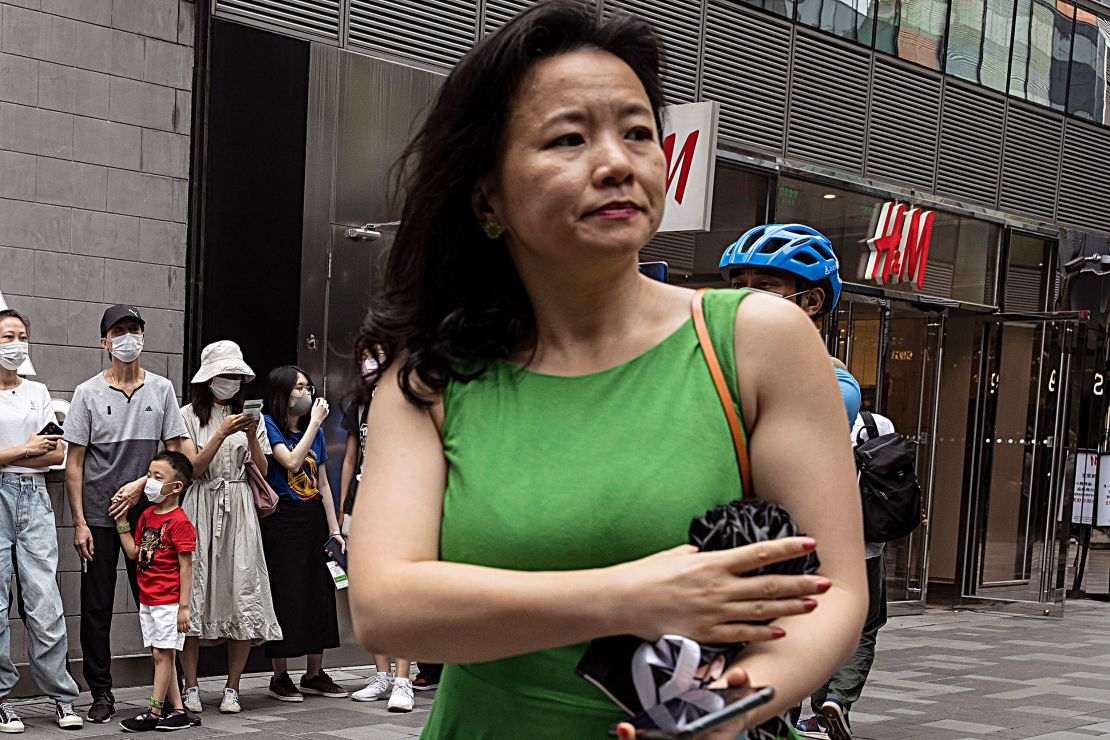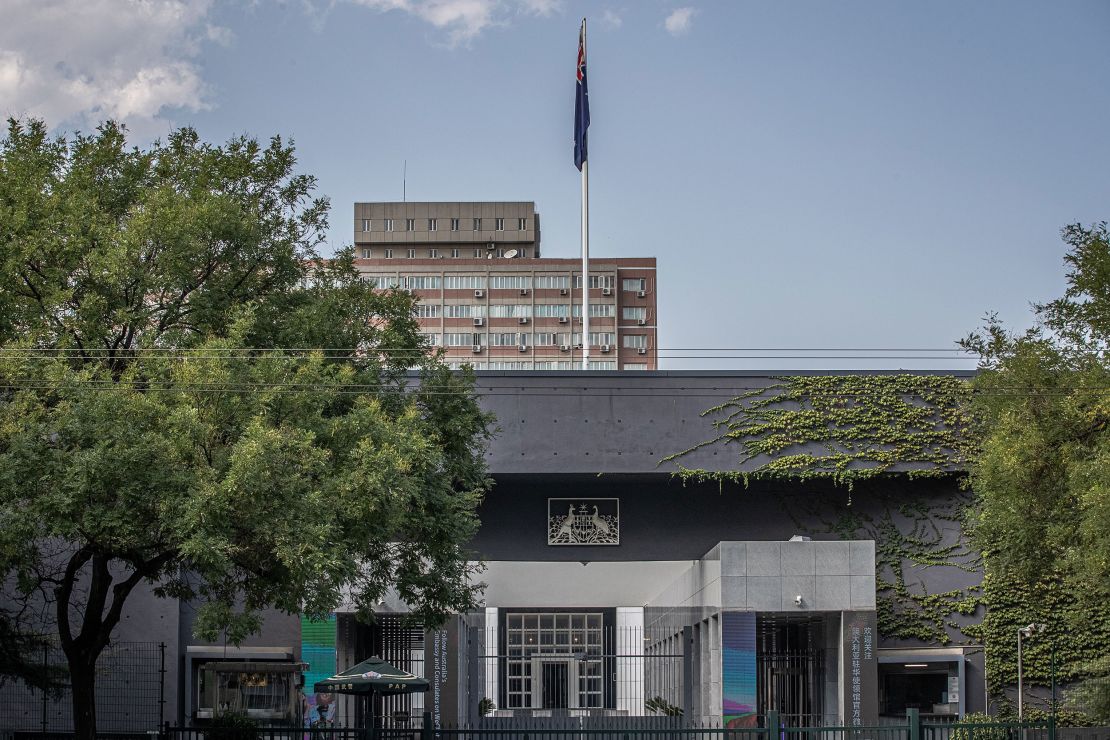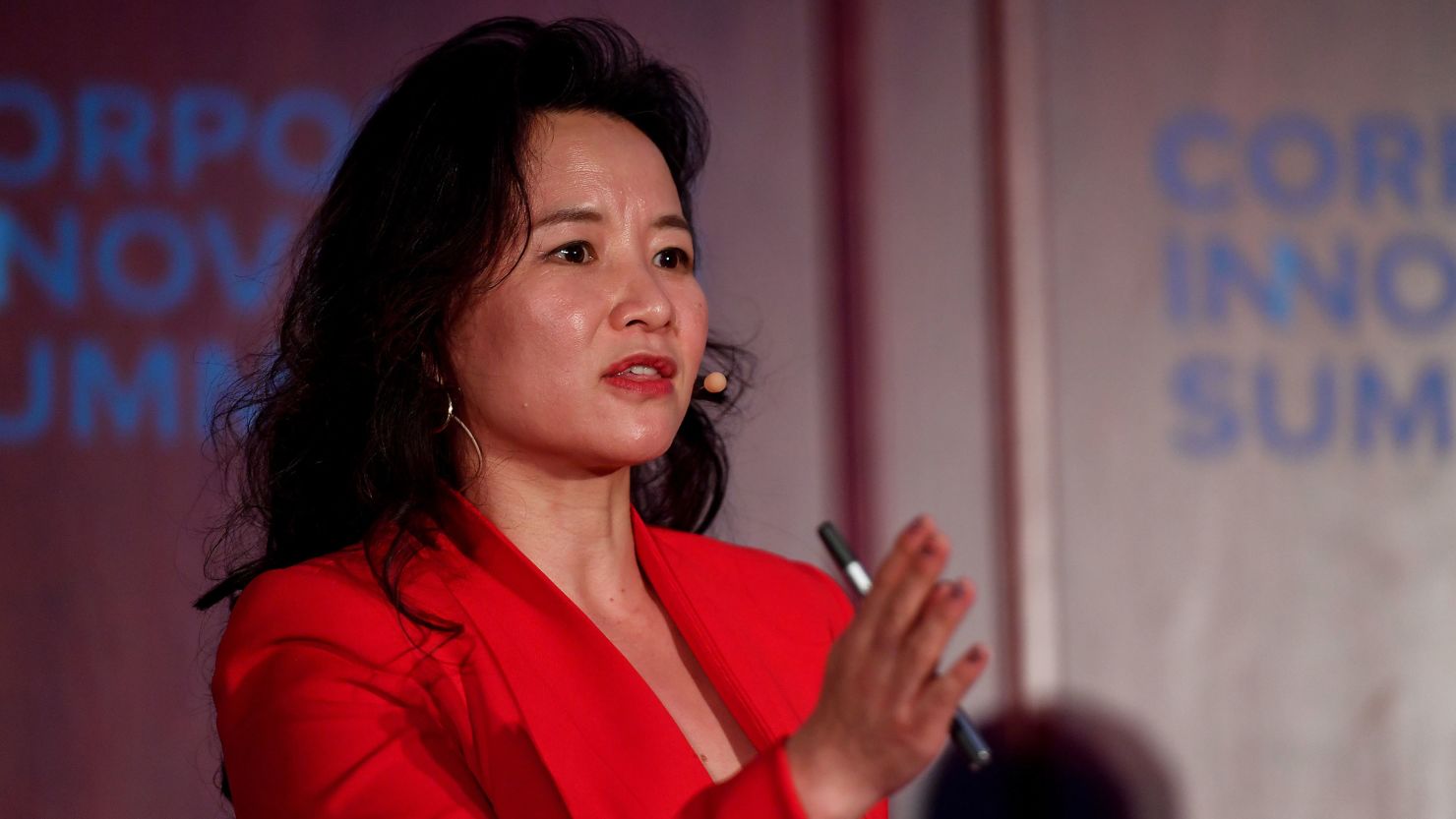Australia’s ambassador to China says he has been denied entry to the Beijing trial of an Australian TV host accused of sharing state secrets, the latest development in an opaque case analysts worry may be politically motivated.
Cheng Lei, a former business anchor of China’s state broadcaster CGTN, is accused of illegally supplying state secrets overseas, a charge that carries a possible sentence of between five years to life in prison.
Australian ambassador to China, Graham Fletcher, told media it was “deeply concerning, unsatisfactory and regrettable” he had been denied entry to the trial, which was due to start Thursday.
“We can have no confidence in the validity of a process which is conducted in secret,” he said, adding that Australia had no information about the charges or allegations against Cheng.
“That is part of the reason why we’re so concerned because we have no basis on which to understand why she’s been detained.”
A heavy security presence including uniformed police and plain-clothed security personnel were outside the No. 2 People’s Intermediate Court in Beijing where Cheng was to be tried, Reuters reported. Police, who had taped off areas close to the north entrance of the court, checked journalists’ IDs and asked them to move away.
Cases related to national security are typically tried behind closed doors in China.
Australia’s Foreign Affairs Minister Marise Payne said Canberra had been advised Cheng would stand trial on Thursday, and had asked that Australian officials be permitted to attend the hearing.
Cheng has been in custody since August 2020, and observers have raised concerns over the secretive court process. Payne says Cheng has been allowed regular access to Australian consular officials, who last saw her on March 21.
Chinese authorities have not revealed details of the allegations against Cheng, but the country has a nearly 100% conviction rate, meaning it was “almost set in stone” that a guilty verdict will be handed down, said Elena Collinson, a senior researcher at the University of Technology Sydney’s Australia-China Relations Institute.
Australia’s ambassador to China was last year denied entry to the espionage trial of Australian blogger Yang Hengjun, who remains in custody.
The Australian government says it has regularly raised issues with Beijing over Cheng’s detention, but Chinese authorities say the judiciary handles cases in accordance with the law.
The lack of transparency over the case and backdrop of deteriorating relations between China and Australia has prompted concerns that the case could be political.
“Even allowing for circumstances in which the case brought against her has some substance, it is just very difficult to believe that tensions between Australia and China haven’t in some way affected or factored into this case,” Collinson said.
“It may well be that the number of years in the sentence will be tailored to send some sort of political message,” she said. “(The verdict) will just fuel the already acute distrust that many Australians feel with respect to Beijing.”

The woman at the center of the case
Before her detention, Cheng had been working a business anchor on CGTN, the international arm of China’s state-owned broadcaster CCTV. Cheng previously worked for US financial news network CNBC, and in her spare time, she was active in the Australian community in Beijing.
In the months after Cheng was detained, her friends said they were in shock.
“I don’t think she would have done anything to harm national security in any way intentionally,” Louisa Wen, Cheng’s niece and spokeswoman for the family, told the Australian Broadcasting Corporation (ABC) last year. “We don’t know if she’s just been caught up in something that she herself didn’t realize.”
Cheng’s two children are being cared for by their grandmother in Melbourne, the ABC reported – and according to a statement from Australia’s Media, Entertainment and Arts Alliance, of which Cheng is a member, Cheng has not been able to speak with her children since she was detained.
In a statement Wednesday, Cheng’s family said: “Her two children and elderly parents miss her immensely and sincerely hope to reunite with her as soon as possible.”
Why Cheng was detained
Analysts say the tense political climate between China and Australia appears to have played a part in Cheng’s detention and arrest.
Relations between the two countries had been frosty for years, but deteriorated rapidly after April 2020 when Australian Prime Minister Scott Morrison called for an independent investigation into the origins of the coronavirus pandemic.
China dubbed Morrison’s proposal “political manipulation,” and targeted Australia over trade, slapping products with tariffs and blocking acquisitions by Australian companies.
Soon after Cheng was detained, two Australian journalists working in China fled the country after authorities attempted to question them on national security grounds, leaving Australia’s media without any journalists in China for the first time in nearly 50 years.
“There’s no transparency, the outside world has no idea what the person has actually done,” said Yaqiu Wang, senior researcher on China at Human Rights Watch, referring to Cheng. “The only thing we know is that this happened during the context of increased tension between the two countries – and the fact that the Chinese government has a history of leveraging, exploiting those cases for political purposes.”
In 2021, China released Canadians Michael Kovrig and Michael Spavor, who had been held for three years on espionage charges. They were detained shortly after the arrest of Huawei executive Meng Wanzhou on a US warrant related to the company’s business dealings in Iran.
The two Canadians were released after the United States Department of Justice and Meng reached an agreement to defer prosecution of US charges against her until late 2022, after which point the charges could be dropped. China consistently denied that the cases were in any way connected.
“This all happened in the context of increased tensions between the West and China,” Wang said. “All people who are foreign nationals doing work in China can be used as leverage by the Chinese government for political purposes.”

What happens next
In the 19 months since Cheng was detained, Australia and China’s relations haven’t improved.
Australia has been taking a more “confrontational stance” when it comes to China, said Wang.
In September 2021, Australia announced it was joining a new security deal with the US and the United Kingdom, which some experts said unnecessarily antagonized China. And in December, Australia – along with other countries – announced diplomatic boycotts of the 2022 Beijing Winter Olympics over human rights abuses and issues in Xinjiang.
But Australia is heading into anationalelection, and while a change in government would unlikely see a policy shift on China, it could help clear the air, Collinson said.
“That might pave the way for – if not a reset – a blunting of this very sharp friction between the two countries.”
It’s not clear what, if any, a reset of bilateral relations would mean for Cheng, who remains isolated from her support networks and separated from her family.
“She has two young kids who she hasn’t seen in years now,” Collinsonsaid. “It’s all well and good to talk at a high level about political tensions and the ramifications thereof, but in terms of its spillover, there are some very real consequences and heavy penalties that normal people have to pay.”
CNN’s Hannah Ritchie contributed reporting from Sydney. CNN’s Sophie Jeong contributed reporting from Hong Kong



